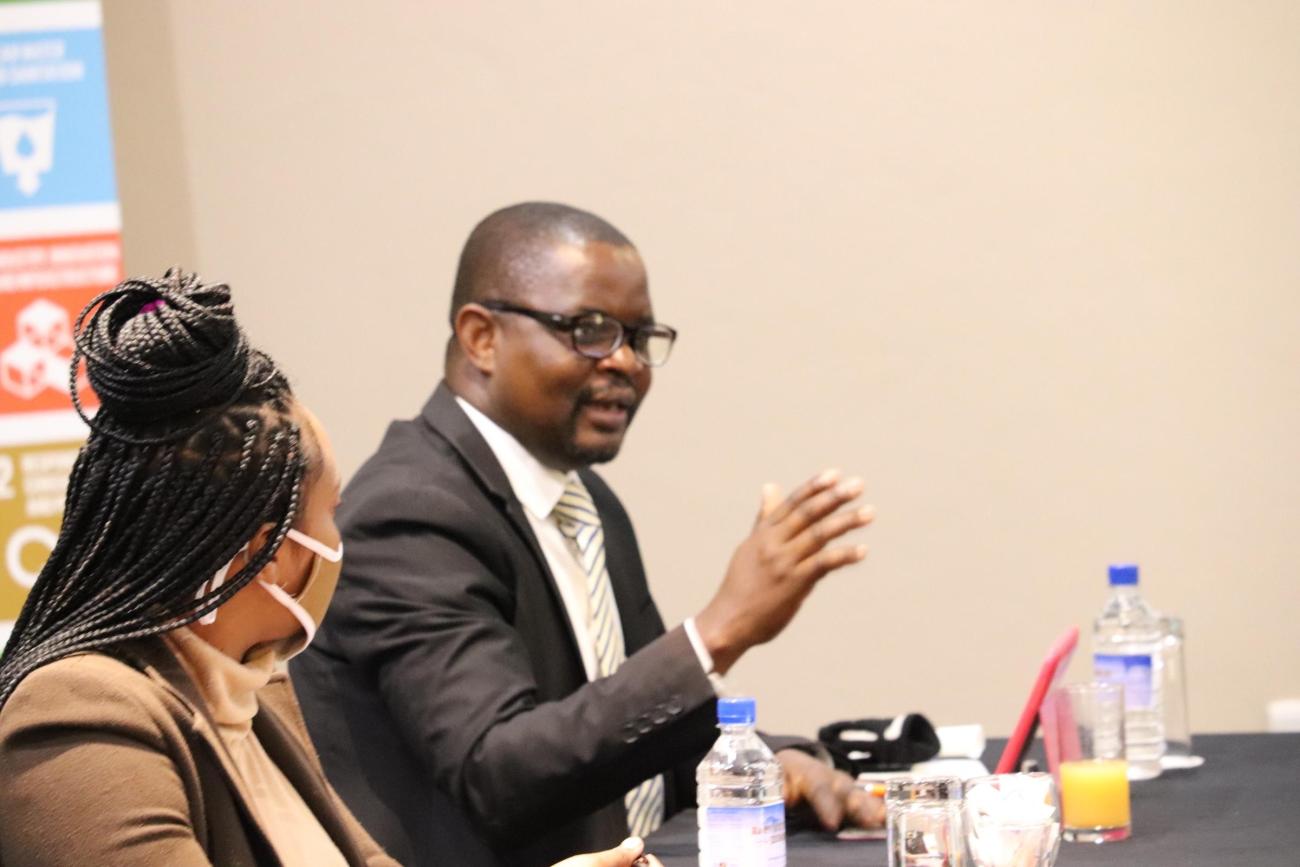UN Eswatini Country Team Hosts a Round-table Breakfast Meeting with Eswatini Media Editors

The UN Country Team hosted a breakfast meeting with media editors and journalists to enhance the partnership and stress the critical role of media in COVID-19.
On Thursday, 28th May, the United Nations in Eswatini Country Team (UNCT) hosted a breakfast meeting with media editors and senior journalists to enhance the partnership building initiated in 2019 and stress the important role of the media in the COVID-19 pandemic.
The engagement, which took place at Happy Valley Hotel in Ezulwini, also served to remind the “Verified” campaign launched by the UN Secretary-General, Mr António Guterres to combat the spread of misinformation on COVID-19 and hate speech.
As the UN Under-Secretary-General for Global Communications, Ms. Melissa Fleming, had stated on the day of the launch of the campaign: “COVID-19 is not just this century’s largest public health emergency, but also a communication crisis... We need to empower everyday people to spread factual trusted information with their friends, families and social networks”.
The UNCT Eswatini collaboration with the media in Eswatini is critical in the present COVID-19 emergency times, but also to promote the Sustainable Development Goals (SDGs), as well as the national priorities as outlined in the National Development Plan (NDP) and the Government Strategic Roadmap 2019-2023.
The UN Resident Coordinator, Ms Nathalie Ndongo-Seh, opened the meeting by introducing all UNCT members present and providing to media partners, both present online and physically, the UN Eswatini Response to COVID-19 articulated mainly around the humanitarian, health and socio economic pillars; the adverse impacts of the pandemic on the attainment of Agenda 2030 along with an update on the development of the Eswatini/UN Cooperation Framework 2021-2025 and the status of the UN75 initiative launched in 2019.
Ms Ndongo-Seh explained to media partners the structure of the UN in Eswatini and the UN’s support to the National Response to COVID-19 through resource mobilization and re-programming. She continued to brief on the UN/Natural Disaster Management Agency (NDMA) humanitarian partners regularly to develop a collective, integrated and coherent Humanitarian Response to COVID-19.
The UNRC noted that the UN is supporting the Regional Emergency Task Forces (RETF) to increase the intensity of their communication and dissemination of Infection Prevention and Control (IPC) messages at community level, working in both the Hhohho and Manzini regions; areas considered to be hotspots for COVID-19 in the country. The campaign will last three months and was launched by the Deputy Prime Minister on 11th May 2020.
Ms Ndongo-Seh highlighted the importance of the Decade of Action to achieve the SDGs by 2030, while stating: “We have ten years only to achieve Agenda 2030 and the 17 SDGs and the realization that no country across the globe may achieve all 17 goals and their associated targets, member states are accelerating efforts towards achieving if not all goals, at least most of them under Agenda 2020. This requires mobilization at countries highest levels, with the private sector, the academia, civil society, youth and women. No one should be left behind in these efforts. We need to be more impactful, innovative, creative and transformative to achieve the SDGs. We need to be bold and COVID-19 is a test to our resilience and the systems put in place.”
Thereafter, the UNRC opened the floor to presentations and updates from UNCT members and questions from media partners.
Updates were provided by UNFPA and included a reminder on the provision of capacity building for the country’s health workers, technical support to ensure uninterrupted health care provision, support in the country’s GBV response. FAO highlighted its support to farmers, together with the Ministry of Agriculture and NAMBOARD, especially with water/irrigation systems and the donations given directly to farmers, in addition to connecting farmers to markets to ensure that they can sell their produce. FAO also informed that they had been working with WFP in providing sanitary kits to NCPs. UNESCO informed the meeting that they are involved in qualitative research efforts on the effects of COVID-19 on the vulnerable populations, while UNAIDS advised that their focus is mostly on preventing the spread of COVID-19 within populations living with HIV/AIDS. UNICEF indicated that the agency is working closely with the Government in areas of health and education through capacity-building for health workers, and the development of key messaging and guidelines, and is engaging partners on school reopening plans, in addition to providing distance learning materials.
Media partners greatly appreciated the updates from the UN family and expressed the desire to be included as key stakeholders in the COVID-19 response but also in all issues debated or occurring in the country.
The UNRC welcomed that commitment and expressed support to those who wish to actively and positively contribute to the fight against COVID-19 and the promotion of SDGs in this Decade of Action. She advised in this regard that media queries and concerns be referred to Mr. Sibusiso Mngadi, RCO Communications Officer also serving as UN Eswatini Spokesperson during these COVID-19 times to establish a direct line of open communication and sharing of relevant accurate information between the UN family in Eswatini and partners, including the media.
Mr. Jabu Matsebula from the Eswatini Media Editors Forum commended the openness of the United Nations in regard to their operations, programmes and contributions towards COVID-19 response in Eswatini and stressed the fact that the current situation is a crisis experienced for the first time globally and in Eswatini. He nevertheless noted the fact that Eswatini had dealt in the past with other health emergencies such as the HIV/AIDS endemic, for which capacity-building had been provided to the media. Although with the media high turnover, it is uncertain how that capacity had been retained, he sought the UN assistance in training the media on all aspects of COVID-19, thereby making it a more informed, knowledgeable, supportive partner also able to lend an hand to development and humanitarian issues in the Kingdom of Eswatini.
The UNRC closed the meeting by reiterating the UN’s unwavering support for the media and stating that “this is the time for unity and solidarity and to give a chance to any person willing to take part in the fight. We need to save lives and livelihoods and put the controversies and distracting matters on lockdown.”
Written by


